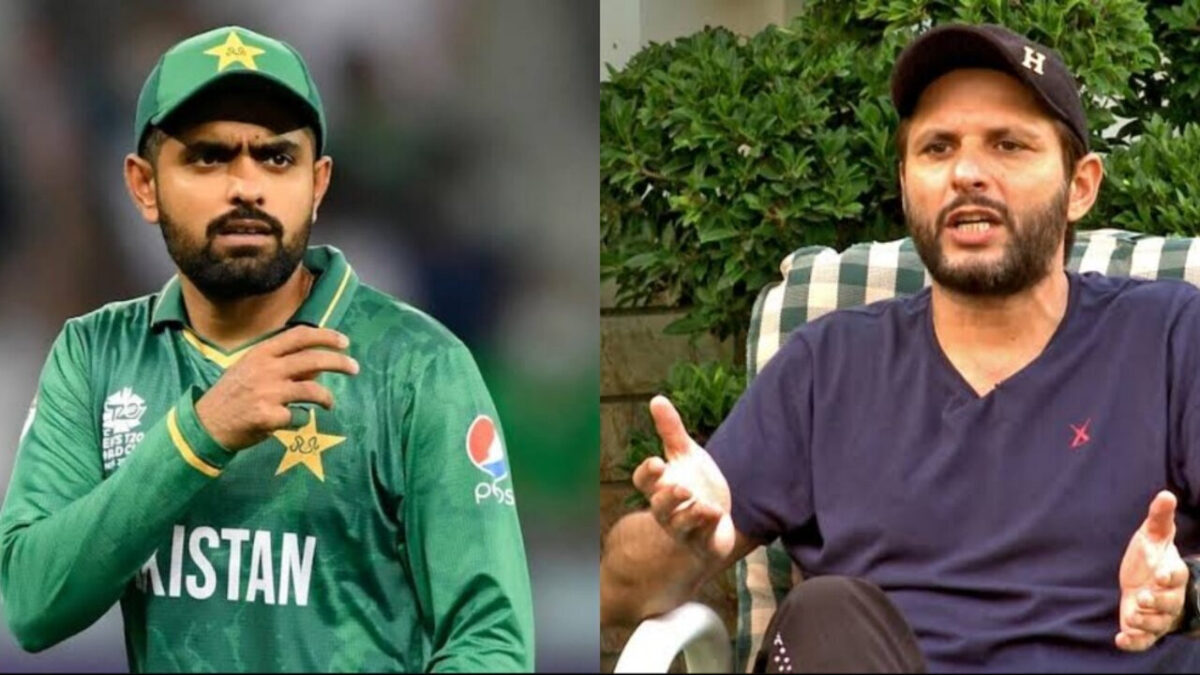The former Pakistan captain Shahid Afridi has lauded the leadership skills of Rohit Sharma, who led the Indian team to their second T20 World Cup win, against South Africa, at the Kensington Oval, in Bridgetown, Barbados. They remained unbeaten throughout the tournament to lift the trophy after winning the final.
In contrast, Babar Azam, the Pakistan captain has earned some blame from Shahid Afridi as his leadership skills were not up to the mark, as the 2009 champions had a very disappointing campaign, to getting knocked out of the group stage of the competition, after losing to the United States of America.
For the whole tournament, Rohit has been crystal clear about his planning and field placement for a specific bowler, besides holding his nerve in the crunch situations, as he showed intent and aggression with the bat, coming at the opening position, and blasting the opponent against the new ball.
‘The body language of the leader becomes the body language of the team’- Shahid Afridi
Pakistan were coming into the tournament, on the back of their 2-0 T20I series defeat against England, as in the very first group stage game of the tournament at the Grand Prairie Stadium in Dallas, the captain Babar Azam didn’t find the sweet part of his bat, and never looked settled in the middle, as their batting.
Also Read: Shaheen Afridi Pays Heartfelt Tribute To Rohit Sharma And Virat Kohli After T20I Retirement
The American side, on the other hand, looked quite energetic in the field and had all the plans ready for the opposition, as they held their nerves better in the super over to get them over the line.
At the Nassau County Cricket Stadium in New York, India were struggling against Pakistan in a small 120-run defense, as the opposition needed 48 runs at run-a-ball with eight wickets in hand, but they still could not manage to get the runs and fell short of the chase.
In their third game of the competition, the requirement for the ‘men in green’ was to win against Canada by a big margin, but they didn’t show any intent even in a small run-chase, and once the affair between Canada and Ireland was washed out, Pakistan were kicked out of the tournament.
The former allrounder of the national team, Shahid Afridi feels that Rohit Sharma’s captaincy has been one of the major reasons why the Indian team went on to win the title, as the body language of the team generally goes into the straight line along with the body language of the team.
‘Look, the role of a leader is always very important. The body language of the leader becomes the body language of the team. The leader has to set an example. Take Rohit Sharma as an example.’ Shahid Afridi expressed to PTI, in a recent in a recent interview.
The way the Mumbai-batter has installed a self-belief among the team has been the reason behind their development in this format of the game, as they have gone with an aggressive mindset.
‘Now, look at his (Rohit Sharma) game and his style of playing; the lower-order batsmen who come in are all confident because the captain likes to play aggressive and attacking cricket.’ The 44-year-old Shahid Afridi remarked. ‘So, I always believe that the role of the captain is very important.’
The veteran of 398 ODIs, waits to see the changes the Pakistan Cricket Board (PCB) members bring after such a horrible tournament.
Also Read: Virat Kohli’s Childhood Coach Rajkumar Sharma Lauds His Decision To Retire From T20Is
‘I don’t know what the PCB chairman has in mind now and I am also waiting to see what changes will be made but I have always supported the team and will keep doing it.’ Shahid Afridi mentioned.
He ended up saying that a positive decision should be made, addressing the real issue in the grassroots system of their cricket.
‘I am also waiting to see what these changes will be. A positive decision needs to be made, and the changes shouldn’t just be superficial.’ Shahid Afridi concluded. ‘The real issue lay at the grassroots level of our cricket. Our product is weak at the grassroots level, and if we invest there, good players will emerge.’
